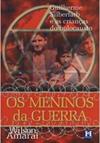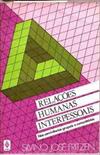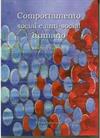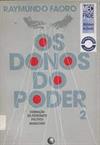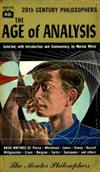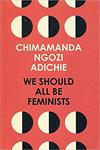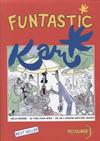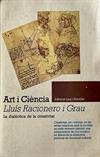
The Archivist
Registered by seedstarter of Neptune, New Jersey USA on 5/7/2005
 This Book is Currently in the Wild!
This Book is Currently in the Wild!
 This Book is Currently in the Wild!
This Book is Currently in the Wild!
2 journalers for this copy...
I picked this book up at a book sale--the jazzy cover got me and the protagonist is a librarian/archivist. The book's binding was damaged--a section looked like it had been removed and reglued. It's kind of appropriate, because that part incorporated Judith's journal, which is a wholly distinct voice from the rest of the book. I agree with jinnayah that Judith's journal entries are more descriptive and complete accountings than what I would expect from a journal, but I can accept that it's a vehicle to look into her inner life. I feel for Judith, because unlike Matthias and countless others, she has no self-protective membrane to filter the harsh realities of the world she knows. She doesn't want one--she prefers to expose the truth to herself and others--but it is painful to read of her suffering and the constant presence of her loss, grief and anger.
I can understand why Matthias wants to "protect" Judith (and himself), but at the same time, I can also see why Judith would feel patronized and infuriated by his actions and inability to accept her as she is--damaged, but not broken. I guess I can see a little of myself in both Judith and Matthias.
I didn't think Matthias' actions at the end of the story were congruent with the way his character unfolded throughout the book. It was too neatly wrapped up, from my perspective.
This was a very different and challenging book for me to read, and it took me a few weeks to process it. I'm not extraordinarily literate or familiar with TS Eliot's work, so I'm quite sure I lost a lot of added meaning that would be appreciated by others.
I'm sending this copy to jinnayah, who I know is an ardent fan, and will find a good home for it.
I can understand why Matthias wants to "protect" Judith (and himself), but at the same time, I can also see why Judith would feel patronized and infuriated by his actions and inability to accept her as she is--damaged, but not broken. I guess I can see a little of myself in both Judith and Matthias.
I didn't think Matthias' actions at the end of the story were congruent with the way his character unfolded throughout the book. It was too neatly wrapped up, from my perspective.
This was a very different and challenging book for me to read, and it took me a few weeks to process it. I'm not extraordinarily literate or familiar with TS Eliot's work, so I'm quite sure I lost a lot of added meaning that would be appreciated by others.
I'm sending this copy to jinnayah, who I know is an ardent fan, and will find a good home for it.
Arrived in the mail today! Wow ... an ex-library copy. I like that.
I have a standard "first Archivist posting," which I have appended to most of the copies that have passed through my hands. I adore this book, so I want to share it with as many people as I can! The last copy (5) to reach me I mailed to Greece! (It hasn't arrived yet.) Anyhow, following is my standard Archivist spiel. Meanwhile, you can see what I did with my other copies here(1), here(2), here(3), and here(4).
*****
The first night I started reading Martha Cooley's book in earnest, I sent out the following HELP! email to a dozen of my friends:
**(90)Perhaps all children are solipsists; perhaps I was merely more of one than most.
**(59)In the early 1950s, Judith began writing about the Kabbalistic myth of God's exile. One evening I asked her to explain this notion. How could a divinity responsible for all things be in exile?
**(22)Judith's been gone for so long. She began leaving many years before her death, in fact. And I had a hand in her departure.
**I keep going back to Eliot's work because it has something to teach me. About craft, obviously, but more than that. The hollowness that Eliot could describe like almost nobody else. But even that's not all.
As I am very well met in my friends, several responded, and we had wonderful reading together. Some of their early reactions:
I corresponded more later with some of my friends on this. A fourth told me after reading it that, though the ideas had power and the book was a good story and a good read, he felt the author was too green. (It is Cooley's first.) She should have let the ideas percolate for another twenty years, he said. I can credit the opinion that the Ms. Cooley bites off a heck of a lot and has trouble chewing it, but in my experience she does eventually manage to swallow it all. As do I.
My "think it over" friend is the type of reader who regularly, even as a rule, devours books in a single setting. I think books are best read slowly, but I usually cannot follow through on that opinion. I start out at a reasonable pace, and then am drawn in more and more and whirl through eventually. The night I wrote that HELP! email I finished The Archivist.
I felt I lost a lot by that. The characters go through many significant changes over the course of weeks, or, in other parts of the book, years. I cannot process their whole lives in the matter of a single late night. I do not allow them to live as fully as an author makes them live when I do that. The second time I read this book I did it over the course of three weeks, no more than three pages in a single sitting. The last third, especially, was far better than I remembered it, more subtle and insightful and careful. It is my opinion that one cannot fully appreciate how many years Ms. Cooley may or may not have mulled over the ideas if one gives less than three days to them oneself. In this I disagree with my friend. He believes an opinion is valid independent of the one who holds it.
*****
In the end, The Archivist is encapsulated, I believe, almost entire in pages 112-3, Judith's journal entry of May 3, 1959. Here all the book's many themes come together. I identify very strongly with Judith. One of my fellow-readers said the middle third of the novel, her journal, is a bit like talking to me. She did not read to me as angry as some of my friends read her (for one this anger made the book far harder; another liked tapping into that power). I share some of her demons.
A fellow reader liked Roberta best. "She has a depth that Matt does not, and a balance that Judith lacks," he said. Roberta's questions, of course, are never answered in this book. It is notable that a character who (in the words of the narrator) sees everything through the lens of conversion never once explains satisfactorally what it means to her. Roberta speaks often of other people's conversions and their effects on her. Yet she never gets personal enough. Clearly she does not consider herself a convert--she believes she discovered what was already her true identity in Judaism--but by any common definition she converted from a childhood Christianity. And she never says what that meant to her.
I will always love this book. And I would love to know whether, and/or how, you do.
Jinnayah
I have a standard "first Archivist posting," which I have appended to most of the copies that have passed through my hands. I adore this book, so I want to share it with as many people as I can! The last copy (5) to reach me I mailed to Greece! (It hasn't arrived yet.) Anyhow, following is my standard Archivist spiel. Meanwhile, you can see what I did with my other copies here(1), here(2), here(3), and here(4).
*****
The first night I started reading Martha Cooley's book in earnest, I sent out the following HELP! email to a dozen of my friends:
I saw The Archivist a few months ago in Borders. I read a few pages from the middle of it, at which point it is a character's diary (through most of it it's first-person narration). I knew there were concepts I wanted more of. Now I have it out from the library, and I started it in earnest yesterday, and I REALLY need help. I need someone else to be reading this book. As you can see, I am making this request to many friends, because I know how busy you all are. But please don't assume you can let it slide because someone else won't.[Here I cited passages from the first 100 pages of the book. They began as follows:]
The Archivist, by Martha Cooley, is about T.S. and Vivienne Eliot and Emily Hale. It is also about religious conversion, conviction, and denial; alienation in marriage and parent-child relationships; depression; libraries, and the literary life. It does things like this:
**(90)Perhaps all children are solipsists; perhaps I was merely more of one than most.
**(59)In the early 1950s, Judith began writing about the Kabbalistic myth of God's exile. One evening I asked her to explain this notion. How could a divinity responsible for all things be in exile?
**(22)Judith's been gone for so long. She began leaving many years before her death, in fact. And I had a hand in her departure.
**I keep going back to Eliot's work because it has something to teach me. About craft, obviously, but more than that. The hollowness that Eliot could describe like almost nobody else. But even that's not all.
As I am very well met in my friends, several responded, and we had wonderful reading together. Some of their early reactions:
“Twenty pages in—I am reminded of the beauty of words.”*****
“Lord! I’ve only read your few excerpts and I’m already trembling.”
“It's about much more than I thought it would be about.”
I corresponded more later with some of my friends on this. A fourth told me after reading it that, though the ideas had power and the book was a good story and a good read, he felt the author was too green. (It is Cooley's first.) She should have let the ideas percolate for another twenty years, he said. I can credit the opinion that the Ms. Cooley bites off a heck of a lot and has trouble chewing it, but in my experience she does eventually manage to swallow it all. As do I.
My "think it over" friend is the type of reader who regularly, even as a rule, devours books in a single setting. I think books are best read slowly, but I usually cannot follow through on that opinion. I start out at a reasonable pace, and then am drawn in more and more and whirl through eventually. The night I wrote that HELP! email I finished The Archivist.
I felt I lost a lot by that. The characters go through many significant changes over the course of weeks, or, in other parts of the book, years. I cannot process their whole lives in the matter of a single late night. I do not allow them to live as fully as an author makes them live when I do that. The second time I read this book I did it over the course of three weeks, no more than three pages in a single sitting. The last third, especially, was far better than I remembered it, more subtle and insightful and careful. It is my opinion that one cannot fully appreciate how many years Ms. Cooley may or may not have mulled over the ideas if one gives less than three days to them oneself. In this I disagree with my friend. He believes an opinion is valid independent of the one who holds it.
*****
In the end, The Archivist is encapsulated, I believe, almost entire in pages 112-3, Judith's journal entry of May 3, 1959. Here all the book's many themes come together. I identify very strongly with Judith. One of my fellow-readers said the middle third of the novel, her journal, is a bit like talking to me. She did not read to me as angry as some of my friends read her (for one this anger made the book far harder; another liked tapping into that power). I share some of her demons.
A fellow reader liked Roberta best. "She has a depth that Matt does not, and a balance that Judith lacks," he said. Roberta's questions, of course, are never answered in this book. It is notable that a character who (in the words of the narrator) sees everything through the lens of conversion never once explains satisfactorally what it means to her. Roberta speaks often of other people's conversions and their effects on her. Yet she never gets personal enough. Clearly she does not consider herself a convert--she believes she discovered what was already her true identity in Judaism--but by any common definition she converted from a childhood Christianity. And she never says what that meant to her.
I will always love this book. And I would love to know whether, and/or how, you do.
Jinnayah
FROM THE SOURCE
Yippee! I wrote Martha Cooley a second fan letter (I wrote last fall and received no answer) and she responded this morning! Whee! She says she didn't receive my first fan letter. Silly Little, Brown. Maybe I'll send her another copy. I've got the long version of the first letter still.
Anyway, this is what the author has to say about Judith:
Yippee! I wrote Martha Cooley a second fan letter (I wrote last fall and received no answer) and she responded this morning! Whee! She says she didn't receive my first fan letter. Silly Little, Brown. Maybe I'll send her another copy. I've got the long version of the first letter still.
Anyway, this is what the author has to say about Judith:
As to my character Judith's world...well, it wouldn't be an easy one to inhabit all the time, as I learned while inhabiting it imaginatively so as to create her journal (which is, as you say, less an actual "journal" than a chronicle of the inner life). But I believe we all have within us the capacity to choose (and keep re-choosing) our angle of approach, as it were, to the world. (Perspectives are endlessly variable, thank goodness!) Depression obviously complicates that capacity, but needn't fully deny or remove it. And it's good we live in better times than Judith did, in that depression itself is now much better understood and treated.I'll be adding this little bit to each of my journal entries for Archivist.
Journal Entry 4 by jinnayah at Camp Cavell, on Lake Huron in Lexington, Michigan USA on Tuesday, September 13, 2005
Released 18 yrs ago (9/17/2005 UTC) at Camp Cavell, on Lake Huron in Lexington, Michigan USA
WILD RELEASE NOTES:
RELEASE NOTES:
Up until now, I have not felt able to release it wild--I love Archivist so much I have to know it will end in appreciative hands. However, this copy I think I'll release at Michigan Dance Heritage Fall Weekend #19 this weekend. Dancers take note!
Up until now, I have not felt able to release it wild--I love Archivist so much I have to know it will end in appreciative hands. However, this copy I think I'll release at Michigan Dance Heritage Fall Weekend #19 this weekend. Dancers take note!
